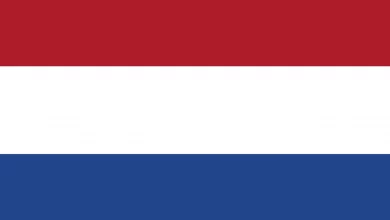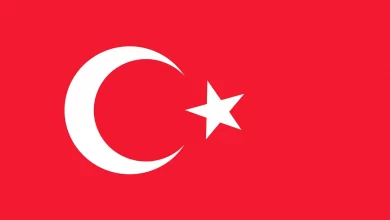Germany, located in the heart of Europe, is known for its rich history, cultural heritage, and economic strength. As a leading global economic power, Germany is renowned for its engineering prowess, particularly in the automotive industry with brands like BMW, Mercedes-Benz, and Volkswagen. The country boasts a diverse landscape, from the scenic Alps in the south to the bustling cities like Berlin, Munich, and Frankfurt, each offering a blend of historical architecture and modern infrastructure. Germany is also a hub for arts, philosophy, and science, having produced numerous influential figures like Beethoven, Einstein, and Goethe. Its complex history, including its role in both World Wars and its subsequent division and reunification, continues to shape its identity on the global stage. Today, Germany plays a vital role in the European Union and is a champion of human rights, environmental sustainability, and international diplomacy.
- The official name of the country is Bundesrepublik Deutschland or the Federal Republic of Germany.
- Germany is the second-most populous country in Europe, just after Russia.
- Saddam Hussein’s bunker was designed by a German man who is the grandson of the woman who built Hitler’s bunker.
- Until 1945 Hitler’s home phone number was listed in Who’s who. The phone number was Berlin 11 6191.
- In 1672 the prime minister of the dutch republic was killed and ate by an angry mob of Dutchmen.
- Before World War 2, there was a country called Prussia, which was later divided among Poland, Germany, and USSR.
- After defeating Germany 8-1 by India in the 1936 Berlin Olympics, Major Dhyan Chand, who is also called the wizard of hockey, was summoned by Hitler. He was promised German citizenship, a high post in the German military, and the chance to play for the German national side. Dhyan Chand, however, declined the offer.
- Germany is the biggest producer and exporter of cheese in the world.

Daderot via Wikimedia Commons (Cheeses in Freiburg) - Public universities in 16 states of Germany have abolished the tuition fee for undergraduate students of not only Germans but for all nationality students.
- The country shares physical borders with nine countries. Denmark in the north, Poland and the Czech Republic in the east, Switzerland and Austria in the south, France in the southwest and Belgium, Luxembourg and Netherlands in the west.
- The first example of a magazine was erbauliche months unterredungen, which was launched in 1663 in Germany. However, the first magazine was published in 1731 in London.
- The country has 309 zoos which is the second-highest on the planet earth.
- Germany ranks on the 3rd after the united states and the united kingdom to won most Nobel prizes. The country has won a total of 108 Nobel prizes till date.
- There is a road in the city of Reutlingen, Germany which a width of just 31 centimeters (12.2 inches) at its narrowest and 50 centimeters (19.7 inches) at its widest. So it is the narrowest road in the world.
- Bundesautobahn 7 (English Federal Motorway 7) is the longest German Autobahn(highway) and the longest national motorway in Europe, which stretches over 963 km (598 mi).
- Germany is the only country in entire Europe to have no speed limits in particular stretches on their highways which are known as autobahns.

Hannes Grobe via Wikimedia Commons (Highway speed set to 120) - It is illegal to run out on fuel on these autobahns, and even walking and running on these highways are strictly prohibited and is counted as an illegal activity.
- Fanta originated in Germany, which was a result of the trade embargo due to world war 2. As coca-cola syrup was banned from importing and the head of coca-cola in the country decided to make a domestic product which was Fanta.
- In Germany, it is a compulsion to get the baby’s name approved by the local registration office called standesamt.
- There are over 250 dialects of the German language.
- Some very important inventions took place in Germany, which changed the world. Few of them are diesel engine, the electron microscope, contact lenses, the printing press, the mp3 music format, first fully functional programmable computer, jeans, jet engine, mayonnaise, motorcycle, nuclear fission, picture scanner, small-format camera, first all-electronic television, the first wooden bicycle, toothpaste and x-ray technology.
- The country ranks 4th in terms of the global ranking index. The global age watch index provides an overview of the progress being made for the health and well-being of older people around.
- The legal drinking age in Germany is 16. Plus, drinking in public places, especially beer, is widely accepted and fully legal in the country. However, smoking is illegal in public places.
- Germany has about 1300 breweries that produce 5,000 varieties of beer.

JIP via Wikimedia Commons (Beers at Oktoberfest beer fest) - Germany is the third-largest beer consumer in the world. The consumption per capita is 101.1 liters per year.
- Oktoberfest beer festival is the biggest beer festival in Europe and is celebrated since 1810 in the town of Munich. Every year over 6 million beer lovers gather here from around the world and consume almost 6.9 million liters of beer.
- Germany is the Europe’s largest economy and the 4th largest economy in the world.
- In 2019 the country was the 4th biggest producer of cars. Some big brands are from Germany like Volkswagen, Mercedes-Benz, BMW, Audi, and Porsche.
- One-third of the total area, or 33% of German land, is covered in forest. It has a total of 11.4 million hectares with over 90 billion trees.
- Football(soccer) is the national sport of Germany and is widely played and watched.
- The country has a reunification symbol which is the Brandenburg Gate of Berlin.
- In Germany, there are over 1200 different types of pastries and rolls and 600 types of bread in about 17000 dedicated bakeries and 10000 in shop bakeries.

Nick Gray via Wikimedia Commons (Bread Shop in Germany) - Some biggest and renowned scientists were Germans. Some of them are Albert Einstein, Wernher Von Braun, Max Planck, Werner Heisenberg, and Otto Hahn.
- Six countries have German as their official language. They are Austria, Belgium, Germany, Liechtenstein, Luxembourg, Switzerland. Over 78% of German speakers in the world live in Germany.
- Germany is a non-permanent member of UNSC, Nato, G4 nations, and the European Union.
- Zugspitze is the highest mountain peak in the country and has an elevation of 2,962 meters(9717 ft).
- The biggest river in the country is the Danube which stretches over 1777 miles and is shared with nine other countries.
- Germany’s top exports are cars ($149 billion), packaged medicines ($74.8 billion), motor vehicles; parts and accessories (8701 to 8705) ($61.8 billion), vaccines, blood, antisera, toxins and cultures ($45.5 billion), and refined petroleum ($25.7 billion), with the majority exported to the United States ($153 billion), France ($120 billion), China ($109 billion), the Netherlands ($109 billion), and Italy ($90.7 billion).
- Germany’s top imports are petroleum gas ($98 billion), cars ($67.7 billion), motor vehicles; parts and accessories (8701 to 8705) ($41.7 billion), crude petroleum ($39.5 billion), and vaccines, blood, antisera, toxins, and cultures ($36 billion), with the majority of imports coming from China ($152 billion), the Netherlands ($131 billion), Poland ($93.1 billion), Belgium ($91.9 billion), and Italy ($78.5 billion).
- There are about 20000 castles in Germany.

Hohenzollern Castle In Burg Hohenzollern, Germany ©Unsplash - Over one-third of 33.7% of the land is arable land.
- Treverorum is the oldest city of Germany which dates back to the late 4th century and is conquered by the Romans, which was later renamed Augusta treverorum.
- The cathedral is the oldest church and building in Germany; it was built on the ruins of Roman buildings by Maximin of Trier in 329-346.
- The most colorful caves are in the country known as Feengrotten in German; the Saalfeld Fairy Grottoes are caves full of stalactites and stalagmites.
- Only 1.2% of total people are employed in the agricultural sector. Whereas the total agricultural land is 166,570 sq. Km.
- The country ranks number 3 in terms of most billionaires; there are 107 billionaires in Germany. The country’s richest man is Beate Heister and Karl Albrecht with a net worth of $34.3 billion.
- Germany is the third-largest exporter of goods in the world, with yearly exports of $1.40 trillion.
- The largest lake on German territory is Lake Constance (536km2), while Lake Müritz 117 km2 (45 sq mi) is the largest lake located entirely within German territory.

Matti Blume via Wikimedia Commons (Lake Constance, Friedrichshafen) - It is illegal to insult anybody in public, or even showing a middle finger is also prohibited in the law.
- The world’s largest cathedral is the Ulm which is 161.5m(530 ft) high.
Quick Facts about Germany
- CAPITAL CITY: Berlin
- POPULATION: 83.8 million (2022)
- POPULATION RANK: 19th
- LARGEST CITY: Berlin
- OFFICIAL LANGUAGES: German
- GDP NOMINAL: 4.082 trillion USD (2022)
- GDP RANK: 3rd
- CURRENCY: Euro
- FOUNDED: 3 October 1990
- FATHER OF THE NATION: Otto von Bismarck
- TOTAL AREA: 357,386 km2
- AREA RANK: 64th worldwide
- CONTINENT: Europe
- AVERAGE LIFE EXPECTANCY: 80.90 years (2021)
- ARMY STRENGTH: 184,167
- ARMY RANK: 19th
- LITERACY RATE: 99 Percent
- PER CAPITA INCOME: 65,990 PPP dollars (2022)
References
- Wikipedia-Germany
- Britannica.com-Germany
- Worldatlas.com(Top Cheese producing countries)
- Wired.com(Suddams bunker)
- Historyextra.com(Prime minister was killed and ate)
- Wikipedia-Beer in Germany
- Mygermancity.com(Total Castles in Germany)
- Topuniversities.com (University education is free)
- Wikipedia-List of Nobel Laureates by country
- DW.com(Beer is legal in public areas)
- Wikipedia-Beer consumption per capita
- Nanakflights.com(Top 10 beer festivals in the world)
- Wimbergers.com(German Bread and Bakeries)
- Wikipedia-Naming laws(naming a child needs to be approved)
- Goethe.de(Important Inventions of Germany)
- Wikipedia-List of Countries by Motor vehicle Production
- Deutschland.de(forest in germany)
- Oec.world(germany imports and exports)
- Wikipedia-Bundesautobahn 7(biggest highway in europe)
- Latimes.com(illegal to insult some one in public)





